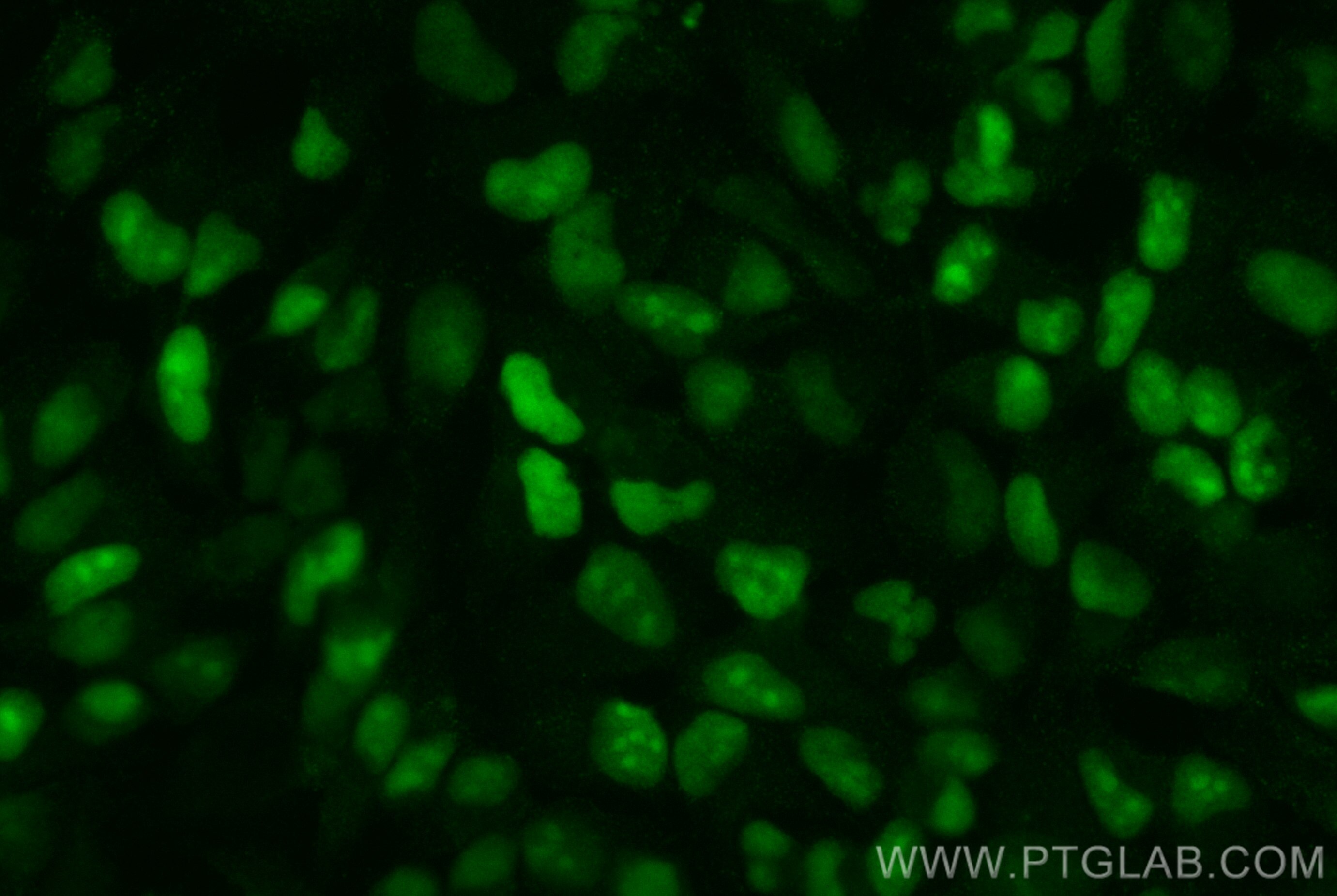Validation Data Gallery
Tested Applications
| Positive IF/ICC detected in | HeLa cells |
Recommended dilution
| Application | Dilution |
|---|---|
| Immunofluorescence (IF)/ICC | IF/ICC : 1:200-1:800 |
| It is recommended that this reagent should be titrated in each testing system to obtain optimal results. | |
| Sample-dependent, Check data in validation data gallery. | |
Product Information
CL488-67790 targets IFI16 in IF/ICC applications and shows reactivity with Human samples.
| Tested Reactivity | Human |
| Host / Isotype | Mouse / IgG1 |
| Class | Monoclonal |
| Type | Antibody |
| Immunogen |
CatNo: Ag30314 Product name: Recombinant human IFI16 protein Source: e coli.-derived, PET28a Tag: 6*His Domain: 580-729 aa of BC017059 Sequence: VCRNGFLEVYPFTLVADVNADRNMEIPKGLIRSASVTPKINQLCSQTKGSFVNGVFEVHKKNVRGEFTYYEIQDNTGKMEVVVHGRLTTINCEEGDKLKLTCFELAPKSGNTGELRSVIHSHIKVIKTRKNKKDILNPDSSMETSPDFFF 相同性解析による交差性が予測される生物種 |
| Full Name | interferon, gamma-inducible protein 16 |
| Calculated molecular weight | 729 aa, 82 kDa |
| Observed molecular weight | 85-95 kDa |
| GenBank accession number | BC017059 |
| Gene Symbol | IFI16 |
| Gene ID (NCBI) | 3428 |
| RRID | AB_3084378 |
| Conjugate | CoraLite® Plus 488 Fluorescent Dye |
| Excitation/Emission maxima wavelengths | 493 nm / 522 nm |
| Form | |
| Form | Liquid |
| Purification Method | Protein G purification |
| UNIPROT ID | Q16666 |
| Storage Buffer | PBS with 50% glycerol, 0.05% Proclin300, 0.5% BSA{{ptg:BufferTemp}}7.3 |
| Storage Conditions | Store at -20°C. Avoid exposure to light. Stable for one year after shipment. Aliquoting is unnecessary for -20oC storage. |
Background Information
IFI16 is a member of a family of interferon-inducible nuclear proteins involved in transcriptional regulation functions as a transcriptional repressor. IFI16 may be involved in TP53-mediated transcriptional activation by enhancing TP53 sequence-specific DNA binding and modulating TP53 phosphorylation status. It has been reported that IFI16 participates in the regulation of autophagy, TP53-mediated cell death and innate immune response.
Protocols
| Product Specific Protocols | |
|---|---|
| IF protocol for CL Plus 488 IFI16 antibody CL488-67790 | Download protocol |
| Standard Protocols | |
|---|---|
| Click here to view our Standard Protocols |

